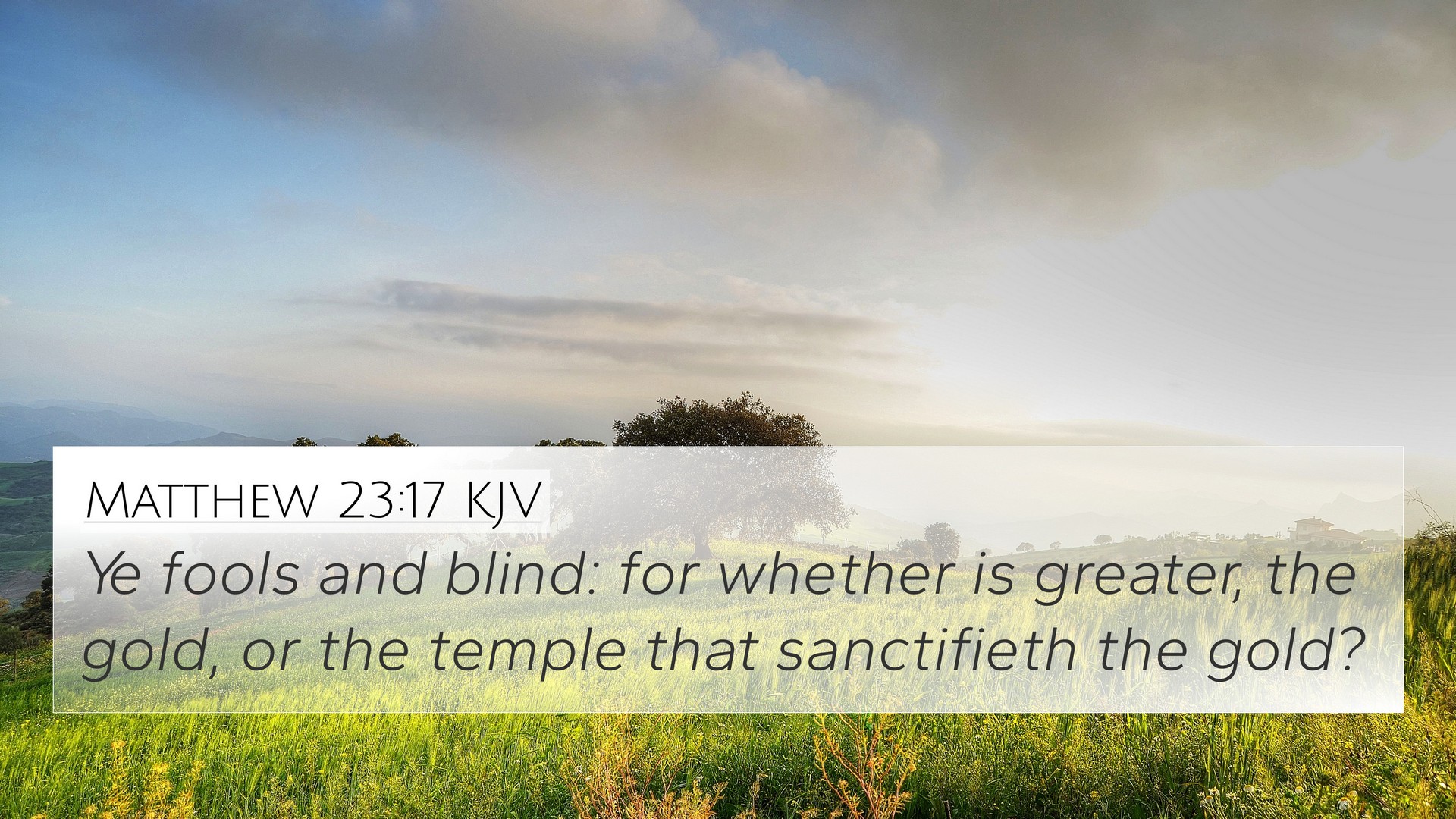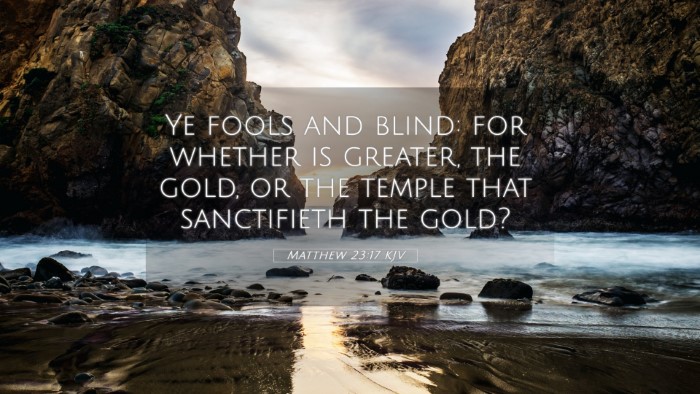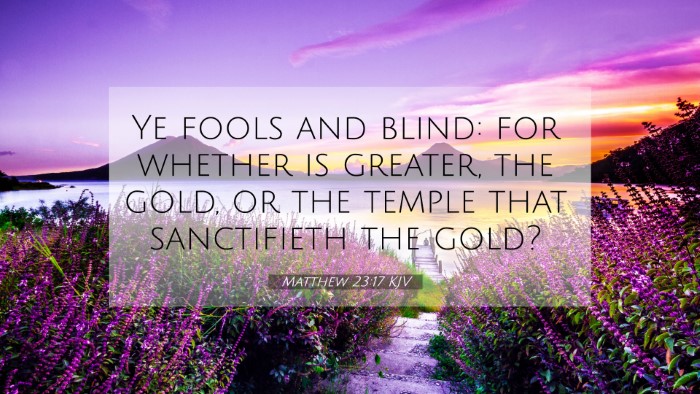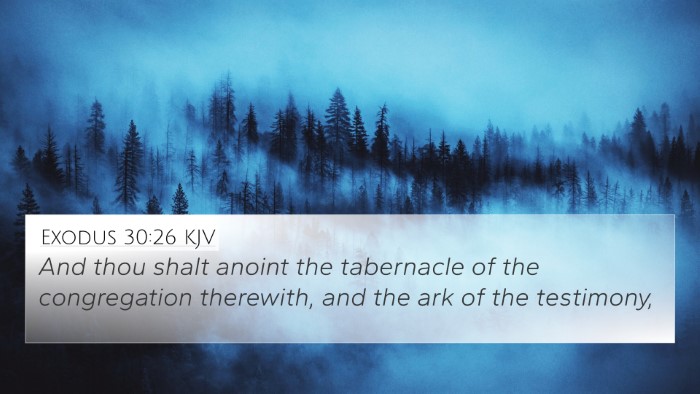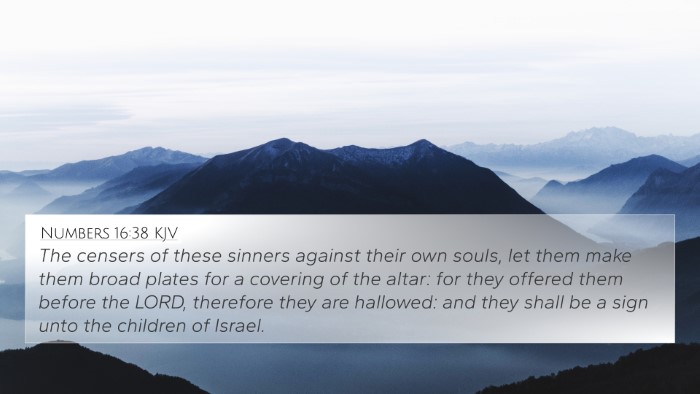Understanding Matthew 23:17
In Matthew 23:17, Jesus addresses the Pharisees and scribes, rebuking them for their misguided understanding of the temple and the gold that consecrates it. The verse reads as follows:
"Ye fools and blind: for whether is greater, the gold, or the temple that sanctifieth the gold?"
This passage highlights the theme of genuine value in spiritual matters versus material wealth. Below is a detailed exposition of the verse drawn from public domain commentaries, providing a comprehensive understanding.
Meaning and Interpretation
Matthew Henry describes this verse as a powerful condemnation of the Pharisees and their improper priorities. He emphasizes that the temple, being the dwelling place of God, holds greater significance than the gold used in its service. According to Henry, the Pharisees were valuing earthly riches over divine presence, thus exemplifying a flawed spiritual perspective.
Albert Barnes similarly points out that the temple is what sanctifies the gold, not the other way around. He elaborates that the Jewish leaders had misplaced their respect, associating worth with material wealth while neglecting the sacredness of God’s house. Barnes encourages readers to recognize what is truly holy amid worldly distractions.
Adam Clarke adds that this statement serves to reveal the hypocrisy of the religious leaders, who were more concerned with external rituals and appearances than with the substance of their faith. His commentary reinforces the idea that true holiness and value come from God’s presence rather than superficial materialism.
Relevant Themes
The exploration of Matthew 23:17 naturally leads to several profound themes within the Bible, emphasizing the need for prioritizing spiritual significance over material wealth. Some intersecting themes include:
- The Nature of True Holiness: The importance of understanding what constitutes true holiness, as seen in 1 Peter 1:16.
- The Role of Faith Over Works: Emphasizing faith's primacy as illustrated in Ephesians 2:8-9.
- Valuing God's Presence: Recognizing the divine over the temporal, as presented in Psalm 27:4.
Cross-References
Matthew 23:17 connects with various other verses that further illuminate its message. Here are 10 significant cross-references:
- Exodus 30:29: Discusses the holy anointing oil, emphasizing the sanctity of objects set apart for God's service.
- Matthew 5:16: Encourages believers to let their light shine, impacting the value of witnessing God's presence over materialism.
- 1 Corinthians 3:16-17: Highlights the idea that believers are God's temple and emphasizes the seriousness of moderation in valuing material things.
- Luke 12:15: Warns against greed, indicating that life does not depend on material possessions.
- John 2:19-21: Refers to Jesus as the true temple, bringing a transformative understanding of value.
- Matthew 23:19: Further critiques the Pharisaic error of distinguishing between material and spiritual worth.
- Romans 12:2: Encourages transformation through renewing the mind, focusing on the eternal over the temporal.
- Philippians 3:19: Warns of those whose god is their belly, emphasizing misplaced priorities.
- Hebrews 9:11: Points to Christ as the greater tabernacle, focusing on the value of spiritual realities over earthly structures.
- Colossians 3:2: Directs believers to set their hearts on things above, reinforcing spiritual over material priority.
Conclusion
Matthew 23:17 serves as a poignant reminder to evaluate our values and priorities. By understanding the significance of this verse, we can adopt a perspective that honors God above material wealth and recognizes the sanctity of spiritual truths.
For Further Study
As believers seek to deepen their understanding of scripture, tools for Bible cross-referencing can significantly enhance this journey. Utilizing a bible concordance or a bible cross-reference guide can help in discovering the interconnectedness of Biblical texts, allowing for a rich engagement with scripture that reveals the cohesive narrative of God’s Word.
